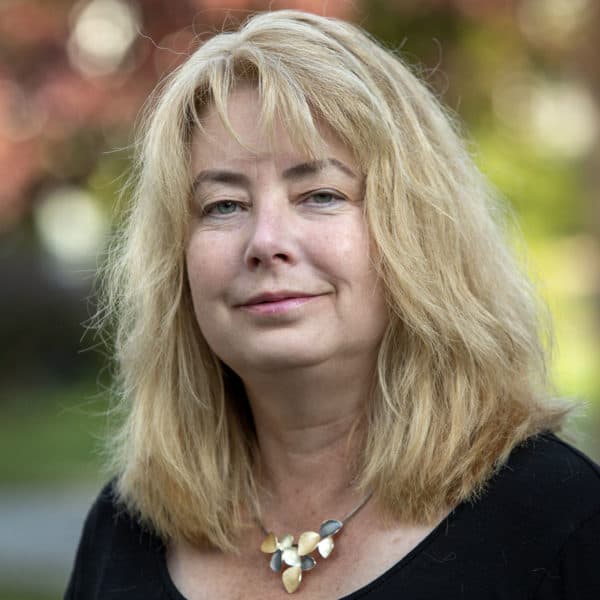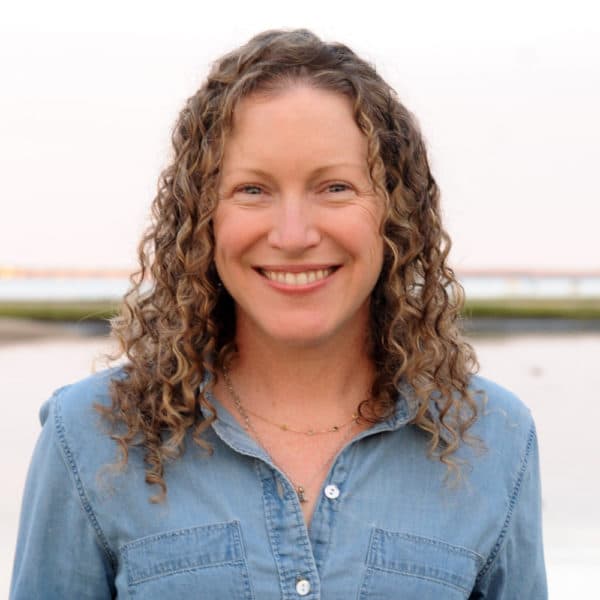Advertisement
Your Stories
Reflections On A Year Of Pandemic Learning: From 'Team Resilience' To 'Seeing My Strong Kids Crumble'
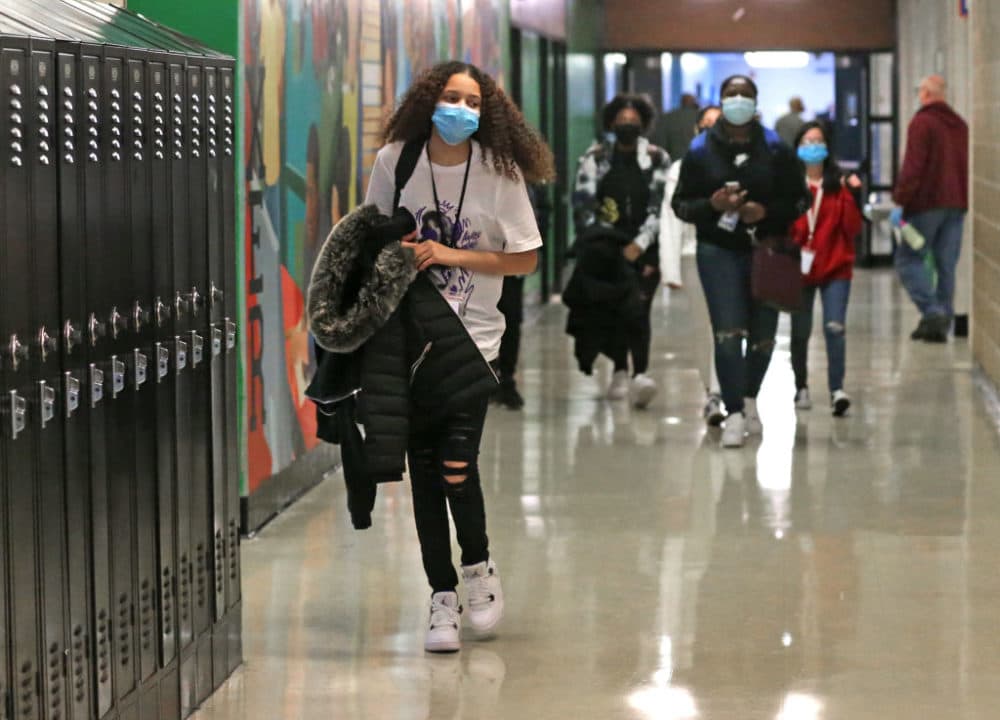
Editors' Note: Read more from "Unexpected Lessons," a series produced by WBUR's education team, about how learning in Massachusetts schools has been shaped by the coronavirus pandemic.
Last August, as families prepared to send their children back to school, Cognoscenti produced a piece that aimed to capture the moment. One word summed it up: “uncertainty.” Nobody knew if school would be safe, or if kids would be able to learn in such unusual circumstances. Dr. Michael Osterholm, a prominent epidemiologist, told us it would be a “COVID year in education.” “This is not going to be normal,” he warned.
In some ways, this piece is a bookend to that one, even as the path forward isn’t fully clear. Over the last couple of weeks, we asked parents and guardians to reflect on a year of pandemic learning, and dozens upon dozens of you answered our call.
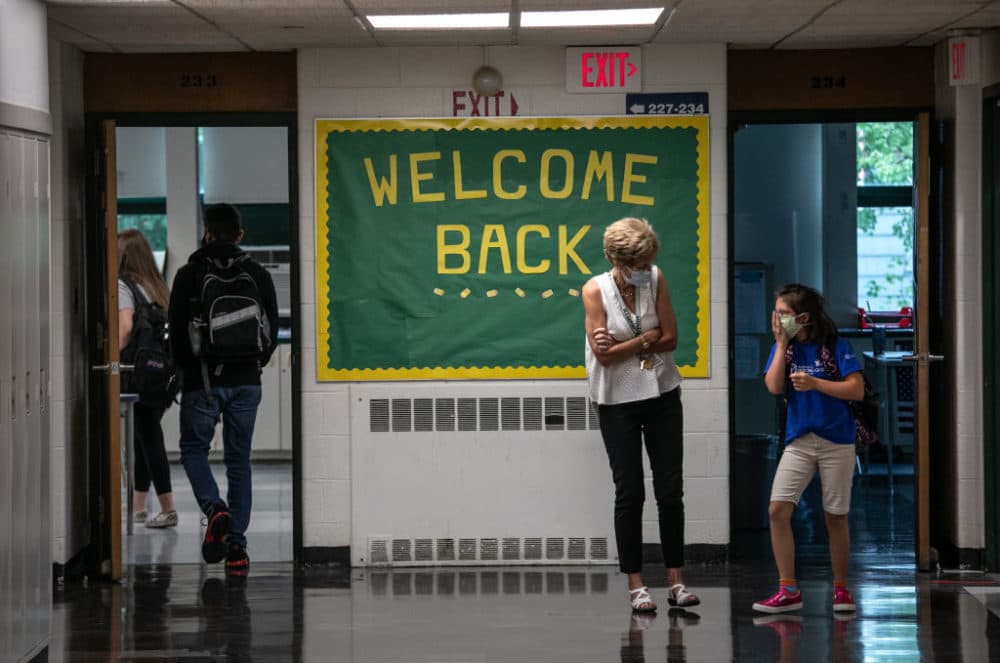
Our questionnaire wasn’t scientific; we wanted to gather people’s gut-level responses after a gut-punch of a year. But some common themes emerged in the open-ended comments. (And we heard almost exclusively from women.)
What did you say?
Kids are resilient — that was a big one. Not surprisingly, individual kids fared differently under pandemic pressures, even kids in the same family. We also heard that overseeing your children’s remote school — while trying to work a full-time job — was bone-crushingly hard (your Cog editors know a thing or two about that one).
Join WBUR Thursday, May 20, at 6 p.m. for a Cityspace conversation about the losses and lessons of pandemic schooling. The event is open to the public and over Zoom.
The lack of social interaction for some kids was especially difficult, but it was helpful to others — less worry about, “Mean Girl movie moments,” as one contributor put it. Some parents were extremely frustrated with their school districts, while many expressed their gratitude for teachers and staff, who they felt, worked overtime to make school an engaging, loving experience.
Advertisement
We were surprised to see how many people flat-out rejected the term “new normal.” “No!” they seemed to be saying, there shouldn’t be a new normal — our children should return to life as they knew it before the pandemic.
We were surprised to see how many people flat-out rejected the term “new normal.”
At the same time, many people didn’t think pandemic learning was all terrible. Teens got more sleep. There was a reprieve from the morning hustle and less focus on high-stakes tests (including the MCAS and the SATs). Respondents also suggested that schools should allow for more flexibility, less homework and regular asynchronous-learning days after the pandemic is over.
Finally, in a year that featured profound isolation, bouts of fear, anxiety, sadness and frustration, many people said they were grateful for simple things: the return of youth sports, walking in nature, family dinners, and the chance to (finally) see friends and relatives after an extended break.
Whatever the last year has been like for you, you’ve nearly reached the other side of this once-in-a-century pandemic. All along, we’ve felt the dissonance of this experience, that it’s been “simultaneously wholly shared and wholly individualized,” as Adrienne LaFrance wrote in The Atlantic last fall. But if we can find any sliver of hope from this difficult and bizarre year, it’s in the way so many kids coped, and (mostly) followed the rules, rolled with contact quarantines and wore masks. They learned how to read and do long-division and interpret Shakespeare over Zoom.
They gave us a lesson in resilience.
“He showed us how to be a part of Team Resilience.”
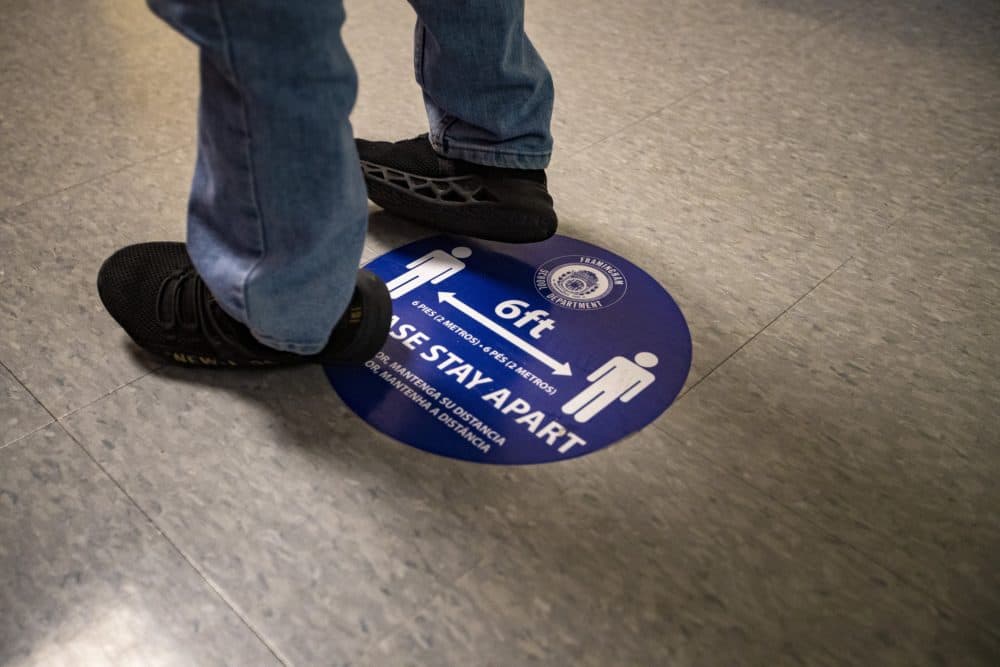
I learned that our children are truly resilient, they are able to adjust and adapt without a lot of complaints or distress. I was surprised by how much we were able to relax into the new pace of life — no more games, parties or activities on the weekends slowed our pace in an enjoyable way. — Régine Jean-Charles, Milton, Mass.
We tried to strike a balance as a family: acknowledging the sadness associated with losses of important life milestones — no graduation, no prom, no orientation — with the recognition that we are very fortunate, and so many have lost so much more.
It will take some time to see how the kids emerge from the moment. My hope is that they will always remember this year for its challenges certainly, but mostly for their good fortune, and that the year will instill in them a commitment to work towards a better world. — Sandro Galea, Brookline, Mass.
My 11-year-old with dyslexia was miserable and shut down pre-COVID last year … This year gave us the chance to change things for him and for me to observe what worked and why. He has had an amazing year in fully remote school. He got a new “team” and he has regained confidence and independence over the year. He’s happy! -- Erica Geiser, Wellesley, Mass.
My kids have gone with the flow and adapted much better than most adults I know.
Amanda Richardson
We learned that while a routine can be comforting and familiar, it can also be stifling and boring. We learned that you can totally love someone with all your heart and still be sick of being with them all the time. (And that's OK! You get over it after a good night's sleep!) — Michele Hammer Spiewak, Sharon, Mass.
[M]y children made me brave this year. They both grew up so much — my son went off to college and my daughter came out as a lesbian — and wow, they are People now, and I am inspired by how resilient they are. — Julie Gerstenblatt, Barrington, R.I.
My kids have gone with the flow and adapted much better than most adults I know. — Amanda Richardson, Tega Cay, S.C.
My husband and I became privy to snapshots into our son’s learning. He hummed as he constructed a plant cell model out of homemade Play-Doh on the kitchen counter. He regaled us with theories about twins and their DNA after a genetics lesson. We loved being his lunch buddies when our remote work and school schedules meshed. But was that great for a 13-year-old? Only once did Simon reveal wistfulness about the opportunities the pandemic stole. “I have not made a new friend since elementary school,” he said.
There is so much we will never know, including the friends he might have made or the additional instruction he might have had during a normal, COVID-free school year. But we know this. He showed us how to be a part of Team Resilience. – Linda K. Wertheimer, Lexington, Mass.
"I don’t think there is a best thing about pandemic school."
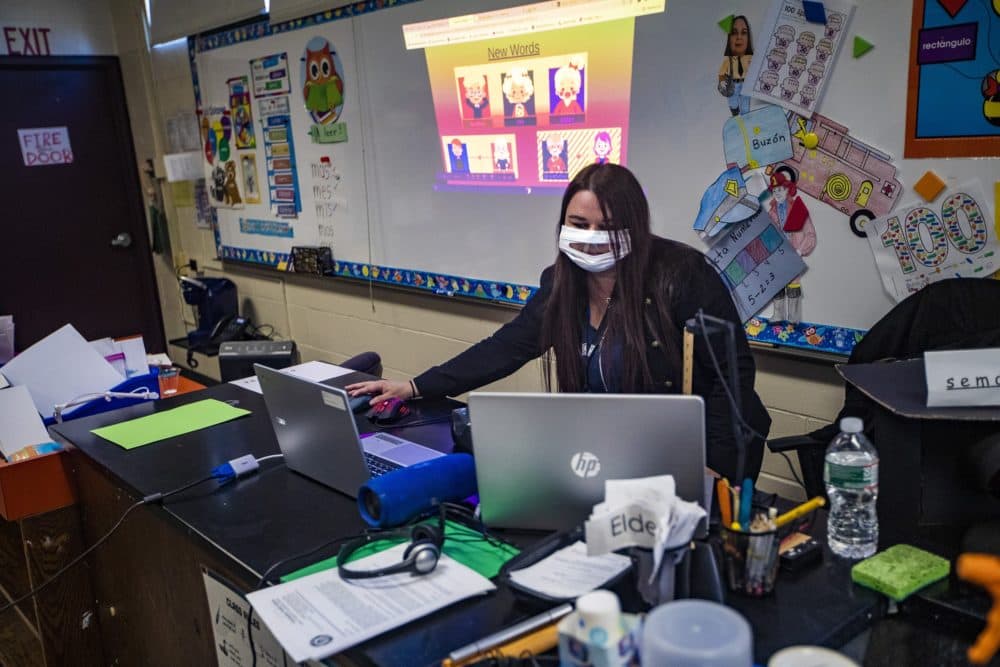
I don’t want anything reminiscent of pandemic life to continue. I want school to be like before, where kids could talk to friends at lunch and they could touch playground equipment and school supplies. — Amy Grossman, Littleton, Mass.
Seeing my strong kids crumble under the weight of isolation through virtual school was crushing. — Marisa Howe, Newton, Mass.
Schools are pushing ahead as though our kids have been in school the entire time. Ignoring loss and not preparing for the recovery that is needed. Kids with [learning disabilities] are in even worse shape and ignoring it will not make it go away. The only kids that will recover are the ones whose parents can pay for outside help. The gap will just keep getting bigger and bigger. — Colleen Popenti, Westborough, Mass.
I learned that I am a terrible teacher. I was pushed beyond my limits with work and school responsibilities. But I survived. -- Monica Studer, Newburyport, Mass.
My autistic child has really flourished with the reduced social contact. No more meltdowns, he is much happier and does really well with remote school. My younger child, an obligate extrovert, has weekly crying jags, went from a straight-A student to nearly failing third grade, and isn't coping well at all. — Skye Savage, Ionia, Mich.
Stop using the phrase new normal. Nothing about this should ever be considered normal. — Molly, Melrose, Mass.
The "new normal" has been what is "normal" in big states like Florida since the start of the school year. Florida has made no exceptions with things like standardized tests (e.g., AP exams, SAT requirements for all public universities), and for those of us who opted to keep our kids online for the full year, the learning has simply not been the same compared to other kids who were in person all year. If we could hold our kids back a year, we'd do it — but we can't. — Gillian Smith, Polk County, Fla.
“Kids can handle way more independence"
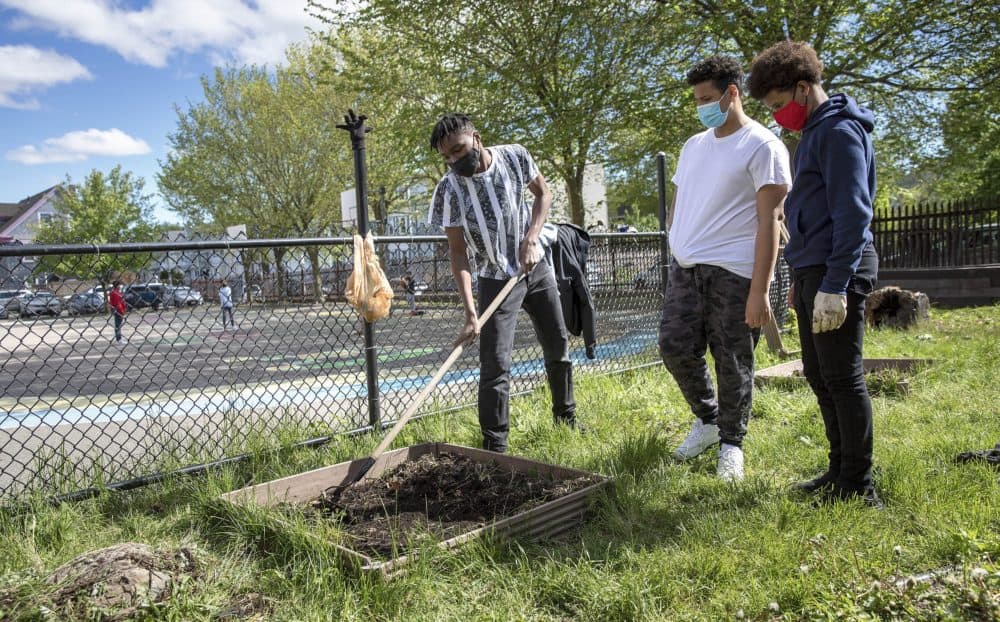
The best part of pandemic school was the break from the hustle and bustle of normal school life. At the beginning, it was a bit of a relief to not have to rush around everywhere, to be able to sleep a little later, etc. However, I do want to be clear that Somerville’s decision to stay 100% remote for over a year of schooling was extremely detrimental to both my children. — Chessie Shaw, Somerville, Mass.
“I have always been a planner. My friends will tell you that I usually have the next three years’ worth of vacations mapped out at any given time. This year has taught me to let go of all this, to live in the moment and find glints of joy where I can.” – Anri Wheeler, Cambridge, Mass.
What I want to bring from pandemic school to traditional school — as a parent and an educator myself — is a profound and proven understanding that there is no substitute for in-person learning. Relating to people in physical space matters and while Zoom has been a helpful last resort, it should never be more than that. — Jonathan Fitzgerald, Swampscott, Mass.
Kids can handle way more independence in their personal learning than traditional school can give them credit for. -- Cariann McCarthy, Rochester, Mass.
As a teacher, many of my high school students flourished in a virtual setting and it would be nice for those students to continue to have that option.-- Kathleen Trace, Virginia Beach, Va.
[I'd like to see] dedicated "remote academies" for kids who just do better away from the classroom. Of course, we'd actually have to fund schools properly first! — Andrea E. Honore, Weymouth, Mass.
“This year, our school nurse, who we affectionately call "Nurse Paula," has become our hero.”
However much we thank school staff for the work they have done this year, it's not enough. They have often put their students before their own families in an impossible situation, and deserve our respect, appreciation, and some REST. — Travis Marshall, Boston, Mass.
Teachers found amazingly thoughtful, innovative and caring ways to connect with our children and our whole family. They went far above and beyond the call of duty to learn new technologies, get to know the children through the screens, and make the transition back to in-person learning as smooth as possible. — Beth Folsom, Framingham, Mass.
Teachers found amazingly thoughtful, innovative and caring ways to connect with our children and our whole family.
Before the pandemic, I never gave much thought to the school nurse. But this year, our school nurse, who we affectionately call "Nurse Paula," has become our hero. She has provided guidance to the administration as to how to return safely to the classroom, as well as to individual families, like ours, who sometimes just needed reassurance that we were doing the right things to keep our family safe. She is, in short, our school community's resident expert and we couldn't have survived this tumultuous year without her. — Jonathan Fitzgerald, Swampscott, Mass.
"Gratitude is a tiny victory — or maybe it's huge?"
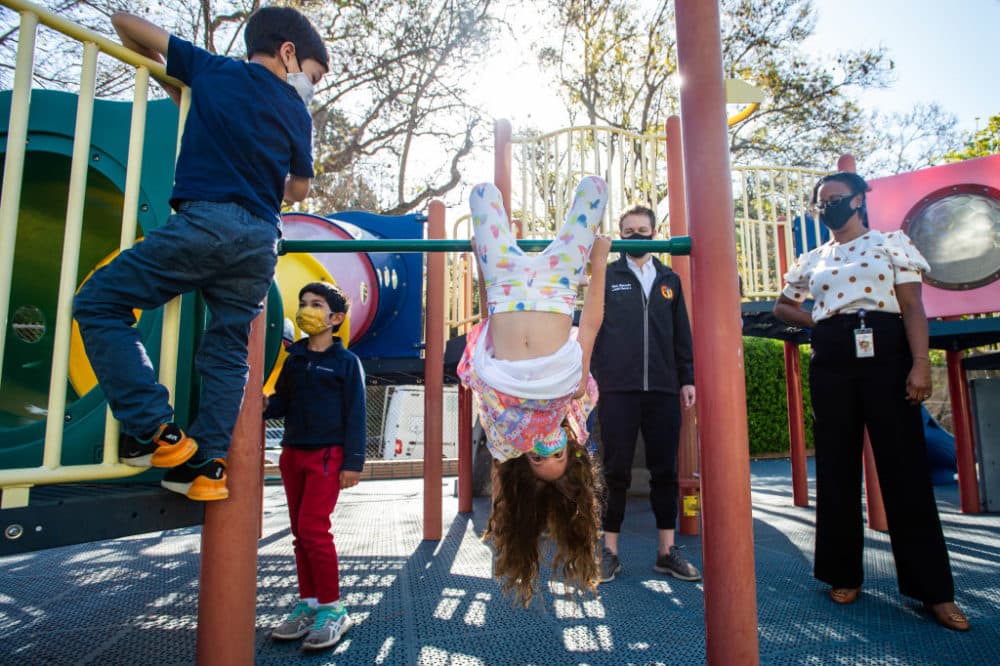
Just being together and being alive. We know that we are lucky. To be vaccinated now as well. For Mother's Day last weekend, we drove to NYC and surprised my parents who we hadn't seen in 16 months. The looks on their faces when they opened their door were priceless, and it was one of the best weekends we've had in a long time. -- Anri Wheeler, Cambridge, Mass.
Our parents/grandparents getting vaccinated. Getting 100 on a math quiz. Advancing belts in martial arts. Honestly, though, sometimes just getting out of bed was a tiny victory. My kids' anxiety about some things makes days challenging. — Kristen Zawatksi, Framingham, Mass.
I learned that grief takes many forms and the feelings I had in the pandemic felt a lot like the feelings I’ve had after loss. Only the whole world was in it together. — Abby, Barrington, R.I.
My son says that he has a deeper appreciation for the school experience, for seeing teachers and stepping up to them when class is over. Or seeing friends in the cafeteria. Gratitude is a tiny victory — or maybe it's huge? — Michele Hammer Spiewak, Sharon, Mass.
Our children participated in protests and local organizing against racism. Our dinner conversations have become more rich. As a family we started hiking and going on walks, truly taking advantage of all the natural beauty in our town. Over the summer our kids made dinner once a week and have more appreciation for needing to organize a meal and feed a family of six regularly. — Régine Jean-Charles, Milton, Mass.

